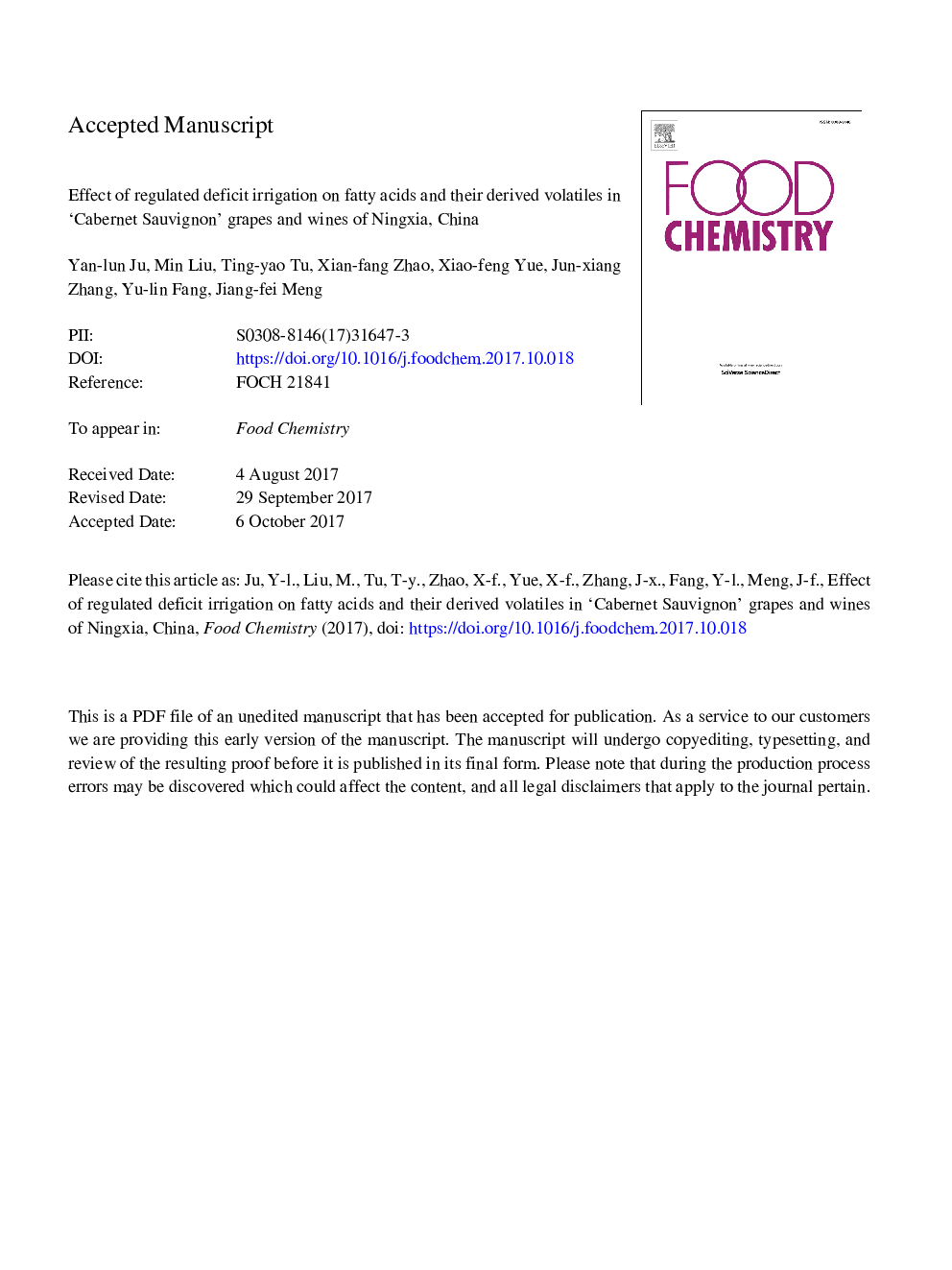| Article ID | Journal | Published Year | Pages | File Type |
|---|---|---|---|---|
| 7586450 | Food Chemistry | 2018 | 35 Pages |
Abstract
The effect of regulated deficit irrigation (RDI) on fatty acids and their derived volatiles in 'Cabernet Sauvignon' grapes and wines was investigated during two growing seasons in the east foot of Mt. Helan, the semi-arid area. The vines received water with 60% (RDI-1), 70% (RDI-2), 80% (RDI-3), 100% (CK, traditional drip irrigation) of their estimated evapotranspiration (ETc) respectively. RDI treatments resulted in lower yield, berry weight and titratable acidity with higher total soluble solids. RDI-1 increased the content of unsaturated fatty acids in berries and decreased the level of alcohols and esters volatiles in wines. RDI-2 and RDI-3 enhanced 1-hexanol and esters in wines in comparison with CK. The concentrations of C6 aroma compounds were closely correlated with unsaturated fatty acids (pâ¯<â¯.05), especially linolenic acid and linoleic acid. The present results provided direct evidence and detailed data to explain the effect of RDI on grapes and wines composition regarding fatty acids and their derived volatiles.
Related Topics
Physical Sciences and Engineering
Chemistry
Analytical Chemistry
Authors
Yan-lun Ju, Min Liu, Ting-yao Tu, Xian-fang Zhao, Xiao-feng Yue, Jun-xiang Zhang, Yu-lin Fang, Jiang-fei Meng,
